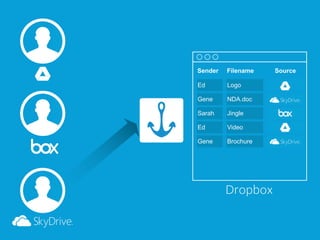Checking Out the Function of Universal Cloud Storage Space Services in Data Defense and Compliance
As organizations significantly depend on cloud storage services to handle and secure their information, discovering the elaborate function these solutions play in ensuring data security and conference governing standards is essential. By diving into the nuances of universal cloud storage space services, a clearer understanding of their impact on data protection and regulative conformity arises, dropping light on the complexities and possibilities that exist in advance.
Value of Cloud Storage Space Services
Cloud storage services play a critical role in modern data administration approaches due to their scalability, ease of access, and cost-effectiveness. Scalability is an essential benefit of cloud storage, allowing companies to quickly change their storage space ability as information demands vary.
Availability is an additional crucial element of cloud storage space services. By storing information in the cloud, customers can access their details from anywhere with a web connection, helping with cooperation and remote job. This ease of access advertises functional performance and allows smooth sharing of data throughout teams and areas.
Furthermore, lots of cloud storage space companies use pay-as-you-go rates models, permitting companies to pay just for the storage capability they make use of. Overall, the value of cloud storage solutions lies in their capability to streamline data monitoring processes, enhance access, and lower operational costs.
Information Protection Strategies With Cloud
By securing information prior to it is uploaded to the cloud and maintaining control over the file encryption secrets, companies can stop unauthorized access and mitigate the risk of data breaches. Multi-factor verification, solid password policies, and routine access testimonials are some techniques that can improve data security in cloud storage services.
Routinely backing up data is one more important aspect of data protection in the cloud. By incorporating file encryption, accessibility controls, backups, and routine safety and security analyses, organizations can establish a durable information security technique in cloud environments.
Compliance Factors To Consider in Cloud Storage
Provided the essential nature of information defense strategies in cloud environments, organizations need to likewise focus on conformity factors to consider when it comes to storing data in the cloud. Compliance needs differ throughout industries and regions, making it necessary for companies to understand and follow the appropriate laws. When utilizing cloud storage solutions, companies require to make certain that the service provider conforms with industry-specific criteria such as GDPR, HIPAA, or PCI DSS, depending on the type of data being stored. Additionally, organizations should take into consideration information residency needs to assure that information is saved in compliant places.

Difficulties and Solutions in Cloud Protection
Guaranteeing durable protection procedures in cloud environments presents a diverse obstacle for companies today. One of the primary difficulties in cloud security is data breaches. Harmful stars regularly target cloud systems to obtain unauthorized access to delicate details. To reduce this threat, organizations need to execute solid file encryption protocols, accessibility controls, and normal protection audits. Another obstacle is the shared responsibility version in cloud computing, where both the cloud solution company and the client are liable for various facets of safety and security. This can bring about complication and spaces in safety insurance coverage otherwise clearly defined. Organizations needs to plainly outline functions and obligations to make certain extensive safety actions remain in place.

Future Trends in Cloud Information Protection
The advancing landscape of cloud data security is noted by an expanding emphasis on positive protection methods and check my blog adaptive safety and security steps (universal cloud storage). As technology developments and cyber risks end up being extra sophisticated, companies are increasingly focusing on predictive analytics, expert system, and artificial intelligence to enhance their information protection abilities in the cloud
Among the future trends in cloud information defense is the combination of automation and orchestration devices to improve protection procedures and action procedures. By automating regular jobs such as hazard detection, incident reaction, and patch administration, companies can improve their overall security stance and much better shield their information in the cloud.
Additionally, the adoption of a zero-trust security model is gaining traction in the world of cloud information defense. This strategy thinks that threats could be both external and interior, requiring continual verification and consent for all individuals and tools accessing the cloud setting. By applying a zero-trust structure, companies can minimize the danger of data breaches and unauthorized accessibility to sensitive information stored in the cloud.
Verdict
